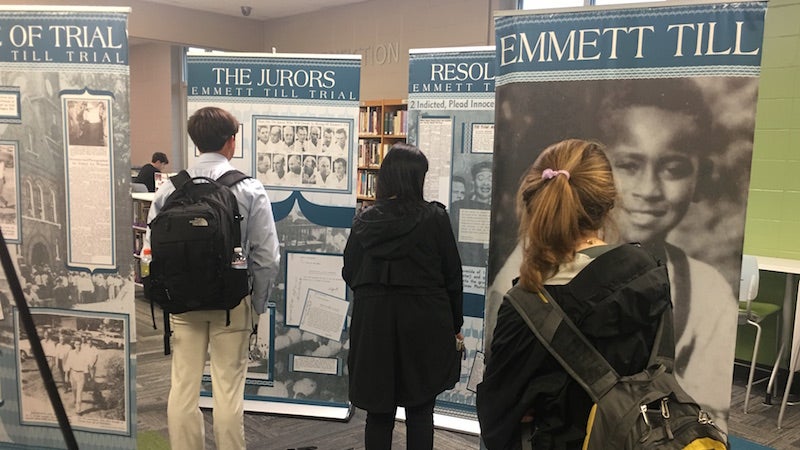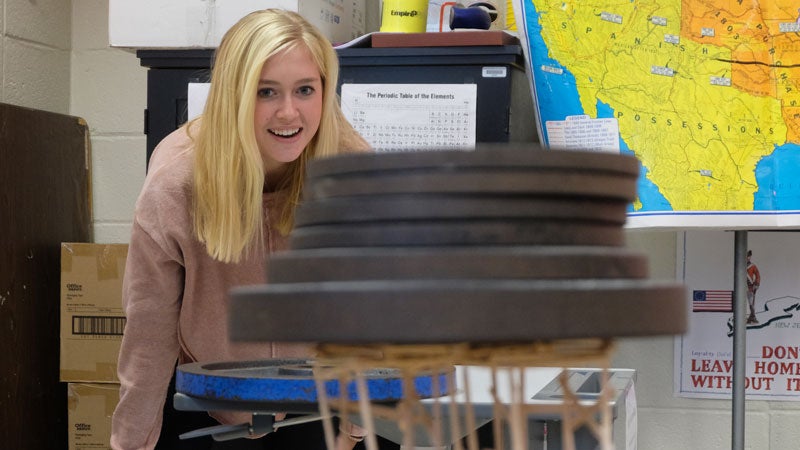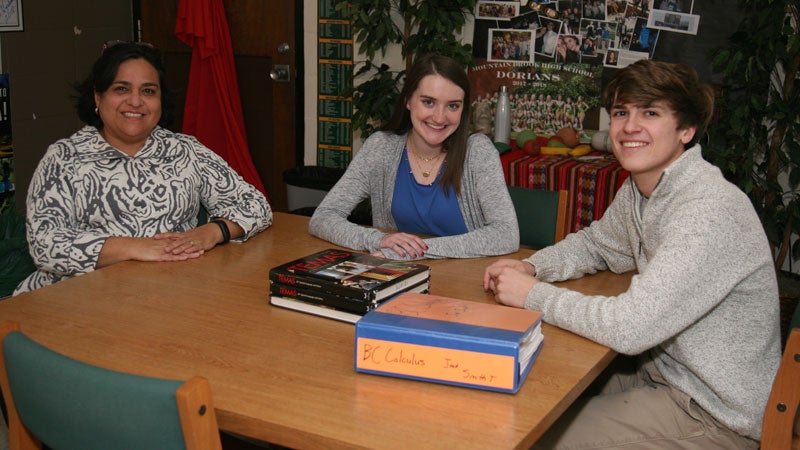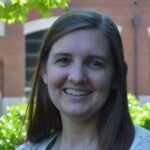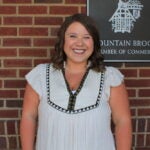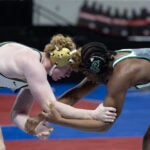By Madoline Markham
Photos Contributed
Oftentimes people fear what they don’t know. For Carla Dudley that was one reason to join Mountain Brook Schools’ Diversity Committee when it formed last summer. For her it was an opportunity to define the school system’s beliefs and for the system to become more aware of experiences within its schools that they might not be aware of.
Dudley, the assistant principal at Cherokee Bend Elementary, was one of 17 people whose own experiences were represented when the committee gathered for the first time last June following an anti-Semitic incident involving MBS students in May and a wave of injustices experienced across the country by religious communities and communities of color. Seated around the room and on video screens were parents, students, teachers and administrators representing populations within the school system as well as representatives from the Birmingham Civil Rights Institute, Birmingham Holocaust Education Center and other local groups.
That meeting began with each person present sharing why they said yes to being on the committee. Crestline Elementary Principal Christy Christian, who co-leads the committee with parent Dr. Al Cohn, says the exercise took about 30 to 45 minutes.
“One thing we heard is people asking how we can grow understanding for differences,” notes MBS Director of Student Services Amanda Hood, who serves as a liaison between the committee and the school system. “If I have a child that is a certain ethnicity or religious background and they are in class with kids who don’t identify that same way, how do we build and grow respect and understanding and levels of comfort?”
The roots of the committee began five years ago during the school system’s strategic planning process that gave rise to four goals, one of which was to help students learn to honor and respect diversity. “That goal was born out of students (who were in college) saying to us, ‘We are from a very non-diverse community, and we are engaging on college campuses with really diverse groups of people,’” Hood explains. “’We don’t want to do it wrong. It would help our comfort level if we expanded our knowledge about it.’”
Over and over again as the committee met five times over the past year, the question of how to define diversity kept coming up, and it is still an ongoing discussion. Diversity is not just about race; it is multifaceted, Hood and Christian say. It’s about religion, learning differences and other elements that make a person unique. “Our conversation has really labored around honoring, respecting and celebrating differences,” Hood says. “It’s about taking the time to think about what someone else’s perspective is and what that perspective is rooted in. It doesn’t mean you have to agree with people all the time. It’s really about being a good listener and being able to converse with people in a respectful way.”
In meetings over the course of 2020, the committee sought to give structure and direction regarding these issues to the school system, but they were also building on diversity-related programs that were already happening in each school. For example, Mountain Brook Junior High’s student council participated in joint leadership training with Huffman Middle School’s student council in November 2019. Currently, some MBJH students are working with students from all over Birmingham as a part of their involvement with the NewGen Birmingham Peacebuilders project through Rotary International’s Rotary Action Group for Peace.
“It really helps our students gain a global perspective,” MBJH Principal and Diversity Committee member Donald Clayton says. “I think anytime you get an opportunity to learn about others in different situations, it develops empathy, and that’s a big thing for a junior high student.”
Additionally, Crestline Elementary has a partnership with Brookville Elementary, a Jefferson County school located northwest of Birmingham. “That partnership started out where we served a lot and collected medical supplies and canned goods and snacks for their after-school program, but it grew into so much more,” Christian says. “We started going to their school with our students. We went to their wax museum and (our students) learned about historical figures (the Brookville students had) studied and then we invited them to come to our plays.”
 Over at Mountain Brook High School, students partnered with Carver High School for a spring musical production of Hairspray with actors from both schools in 2018. Additionally, MBHS partnered with Wenonah High School through the YWCA for groups of students to spend time in one another’s school during a typical day. “It was about stereotypes, cultures and how every community and school faces their own stereotypes,” Hood says. “It was interesting to hear the Wenonah kids talk about the stereotypes they feel are placed upon them and the Mountain Brook kids to talk about the stereotypes that are placed upon them. It was powerful, and there were friendships born out of that. The way kids grow is through authentic experiences.”
Over at Mountain Brook High School, students partnered with Carver High School for a spring musical production of Hairspray with actors from both schools in 2018. Additionally, MBHS partnered with Wenonah High School through the YWCA for groups of students to spend time in one another’s school during a typical day. “It was about stereotypes, cultures and how every community and school faces their own stereotypes,” Hood says. “It was interesting to hear the Wenonah kids talk about the stereotypes they feel are placed upon them and the Mountain Brook kids to talk about the stereotypes that are placed upon them. It was powerful, and there were friendships born out of that. The way kids grow is through authentic experiences.”
To help further those authentic experiences, the committee’s second meeting invited representatives from the Birmingham Civil Rights Institute, YWCA, Birmingham Holocaust Education Center and the Anti-Defamation League to share about resources available to the schools for educational support. For the third meeting the committee broke into subcommittees to discuss specific next steps that were later presented to the committee. By December they presented five recommendations to the Board of Education (see full list at the bottom of this article).
One of those recommendations came directly from feedback from a group of MBJH and MBHS students representing sectors of the student body and led by MBHS seniors and committee members Adam Williamson and Hannah Halpern. “I see what goes on every day at the high school, and there are some things that go on that I think we need to take a look at,” Williamson says.
The current MBHS code of conduct addresses bullying and harassment, but the students suggested that hate speech and symbols be named and defined separately from bullying and harassment within the code. That change will likely occur over the summer.
“The school system will recommend the school board approve a designated discipline code assigned specifically to the use of hate speech and symbols,” Superintendent Dicky Barlow says. “We are very proud of the work of our students and their thoughtful recommendation on how to emphasize the importance of these issues.”
As to the committee’s other recommendations now moving into action, each Mountain Brook school has formed its own diversity programming committee made up of students, parents and faculty that will continue this work. At Cherokee Bend, for example, the committee is looking at more diverse literature to help remove biases at an early age. The school is also looking to partner with a sister school in Birmingham to build ongoing trust between the two schools through service projects they would engage in together and book studies where students can hear how others might take in the same information differently from themselves.
In addition to the school committees, by the end of this summer every faculty and staff member in the system will have gone through anti-bias training through the Anti-Defamation League. “You have to start there before you start with the kids because we are all coming with a lens, and you don’t realize it,” Christian explains. “We are shaped by our experiences, and that shapes how we act and respond and make decisions.”
Dudley echoes the power of this training she’s seen at Cherokee Bend. “It’s been amazing to watch the entire team have those ouch moments and amen moments,” she says. “If you can’t face who you are, then you can’t teach the children. The adults have to have some form of their identity exposed as well, and that affects how we approach everything we do.”Christian is open abut her bias as well. She was the first African American teacher at Brookwood Forest Elementary when she started teaching second grade there in 2001, but she says she didn’t realize that until another staff member pointed it out to her.
And everyone on the committee has their own set of stories like that that connect them to this work.
For parent Stephen Bridgers, his is tied through his youngest two children, who are adopted from the Republic of Congo. “So everyone in the neighborhood knows us,” he says. “We have had zero negative interactions, but they are known because of that.”
For him, diversity involves religious and learning differences, but the issue that speaks loudest to him is race—something he’d like to see more diversity of in Mountain Brook classrooms. “Programming is wonderful and so are opportunities to visit and interact with communities that are different from us, but the most life-altering thing is to see diversity in the classroom,” he says. “I think Mountain Brook would be a stronger community when we have that.”
While the committee and the evolution of their work is a story still to be written, one thing is certain. The committee’s work is not over. They plan to continue to meet and make recommendations to the Board of Education in the months and years to come.
Committee co-chair Dr. Al Cohn, whose three kids attend or have graduated from the Mountain Brook Schools and whose family is Jewish, notes that the committee’s recommendations are being acted on, not just passively heard, and that it is an ongoing conversation.
“We have a long way to go,” Christian says. “This exposed work we needed to do. I am glad district wide we are tackling this.”
Roll Call
Mountain Brook Schools Diversity Committee Members
- Jenny Argo: Teacher, Mountain Brook Junior High
- Stephen Bridgers: MBS Parent
- Christy Christian: Principal, Crestline Elementary
- Donald Clayton: Principal, Mountain Brook Junior High
- Al Cohn, M.D.: MBS Parent
- Danny Cohn: Chief Professional Executive Officer, Birmingham Jewish Federation
- Cameron Cole: MBS Parent
- Carla Dudley: Assistant Principal, Cherokee Bend Elementary
- Christi Elias: Teacher/Coach, Mountain Brook High School
- Hannah Halpern: Student, Mountain Brook High School
- Ann Mollengarden: Education Coordinator, Birmingham Holocaust Education Center
- Sandy Ritchey: Principal, Cherokee Bend Elementary
- Brock Rotter: Teacher, Mountain Brook High School
- Ben Wei, M.D.: MBS Parent
- Adam Williamson: Student, Mountain Brook High School
- Adam Wright: Rabbi, Temple Emanu-El
- Charles Woods: Outreach Coordinator, Birmingham Civil Rights Institut
Change in Action
The MBS Diversity Committee presented these five recommendations to the Board of Education in December, and they are all now in the process of being implemented.
- Effectively develop diversity programming committees at each Mountain Brook School to develop programming that will enhance students’ experiences and opportunities to interact and partner with diverse communities and people.
- Define hate speech and symbols as a separate actionable offense in the Mountain Brook Schools Code of Conduct.
- Develop methods of communication with the broader Mountain Brook community about diversity opportunities and experiences to support students, families, and community members.
- Develop partnerships with local and national organizations as a resource for professional learning, student training, and parent support, including the Anti-Defamation League, the Birmingham Civil Rights Institute and the Birmingham Holocaust Education Center.
- Exploration and development of authentic experiences through which schools experience positive interactions with more diverse communities in an effort to develop understanding, collaboration, and growth.

